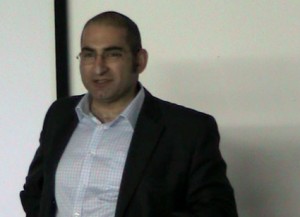Recent studies have shown that students are comfortable using sites such as Facebook and Twitter in their social lives but feel less confident about applying those skills for learning.
Our own small-scale study, carried out in conjunction with our careers service SEECC, indicates that the same seems to be true for careers research, networking, engaging in discussions, and showcasing achievements – all crucial employability skills for our students in the digital age.
117 Reading students took part in the survey we conducted in February to find out how our students are using social media for employability.
Nearly all respondents (98.3%; 115) stated that they are registered on social media sites. 96.6% (113) of students are signed up to Facebook, 50.4% (59) registered on Twitter, and 33.3% (39) using YouTube, with many students accessing their accounts on a daily or even hourly basis. However, only 13.7% (16) of students who took part in our survey have uploaded a profile on LinkedIn, the professional networking site recommended by many careers experts.
Only a small number of students are using social media for employability. For example, out of 115 students using Facebook only 10.4% (12) are using this site to search for jobs or work experience, 9.6% (11) for networking with potential employers, 16.5% (19) to research companies, 4.3% (5) to engage in professional discussions, and 3.5% (4) to showcase their academic profile.
Reasons for not using social media sites in this way include students’ perceptions of those sites as purely social platforms, concerns about employers seeing their profiles, and uncertainty regarding how social media sites could help them with their careers.
Students come to university already familiar with social media which, with a little guidance, could give them another string to their bows when it comes to finding work experience and graduate jobs, and in their professional development. In February, Em Sowden, Senior Placement and Development Manager here at Reading, ran a session on ‘Using social media for employability’.
As Em explained, recruiters expect applicants to have a professional online presence. Employers are increasingly and actively using social media as an instant, cheap medium to find and recruit proactive job seekers. Em recommends Twitter and LinkedIn to help students and graduates conduct research on companies they are interested in, as well as connecting with recruiters, building contacts and discovering or even creating employment-related opportunities. Her presentation and top tips can be found here.
The Digitally Ready team are working with SEECC to look at ways of engaging students so that they can take full advantage of the capabilities of social media to raise their professional profile.



